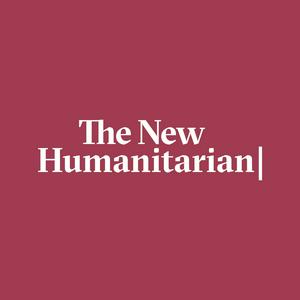The US aid freeze has exposed not only the fragility of humanitarian funding but also longstanding dependencies, vulnerabilities, and power dynamics that demand a broader reckoning. This event will explore the urgent need for structural change, seeking clarity and ideas amid the chaos. In what we hope will be one conversation of many, we reimagine the future of humanitarian aid in an era of mounting challenges and transformative opportunities. SPEAKERS The event was moderated by TNH CEO Tammam Aloudat, who was joined by: Deborah Doane – Author of The INGO Problem: Power, privilege and renewal. Dustin Barter – Acting Director of the Humanitarian Policy Group at ODI. Dr. Lata Narayanaswamy – Associate Professor in the Politics of Global Development, University of Leeds. Nidhi Bouri – Former Deputy Assistant Administrator for Global Health, USAID. Stella Naw – Kachin human rights activist. ____ Got a question or feedback? Email
[email protected] or have your say on our socials using the hashtag #RethinkingHumanitarianism. ____
